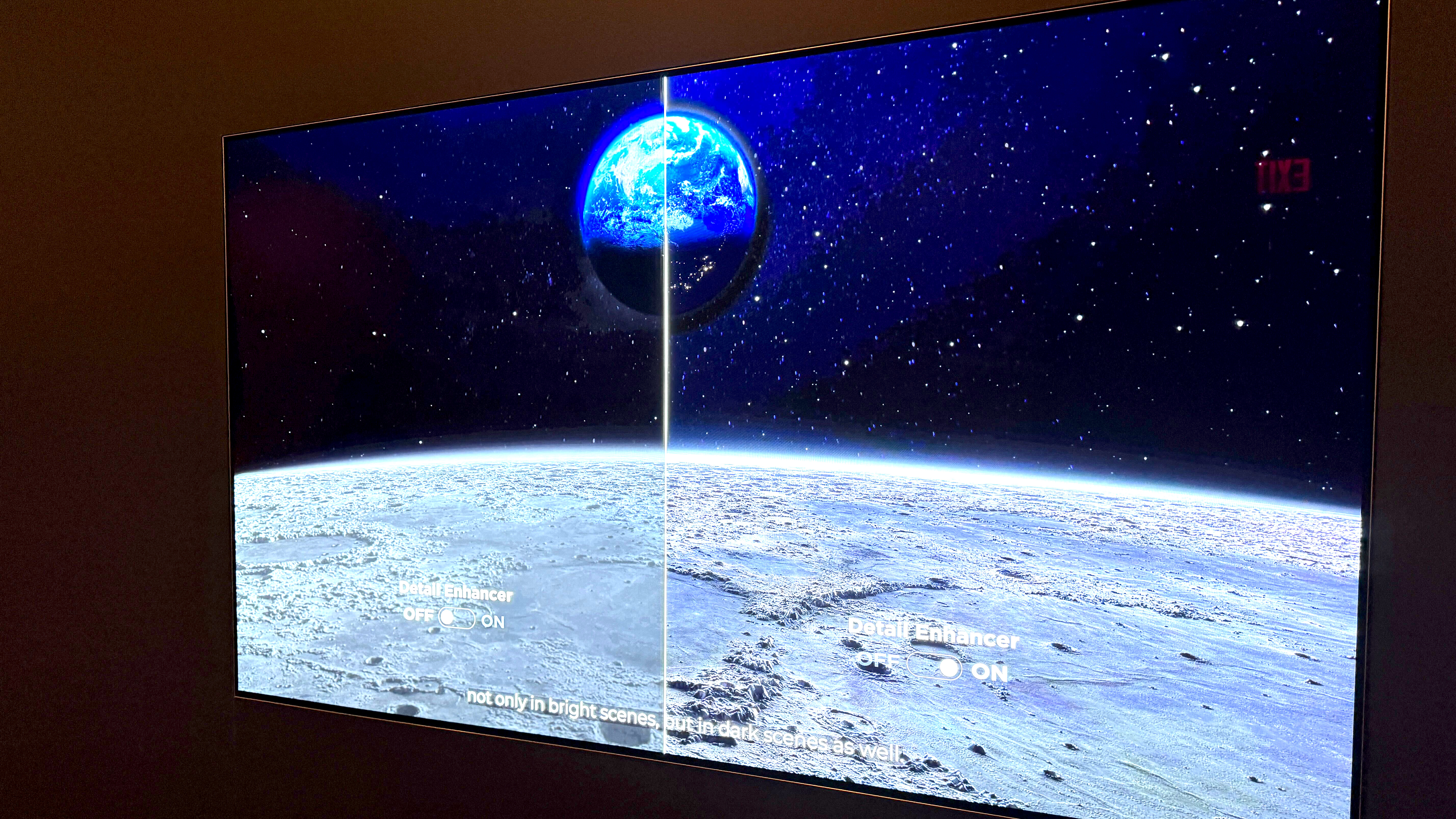
The SID Display Week 2024 conference is happening this week, and LG Display revealed a number of next-generation OLED displays as part of the conference, including a VR headset display that seems designed to be as bright as the sun.
The OLEDoS (or OLED on Silicon) panel for virtual reality that LG unveiled is a 1.3-inch screen that LG claims is capable of achieving an ultra-high brightness of 10,000 nits.
Just for comparison, we recently reviewed the LG C4 OLED TV, a mid-range TV that is capable of hitting nearly 1,200 nits in our brightness tests. Higher brightness brings in more details during bright scenes in a show or movie but also helps retain color saturation during the day. And that’s a TV, a device you generally sit anywhere from 6 to 10 feet away from in the average living room.
On the VR front, the Meta Quest 3 VR headset, released late last year, has an advertised brightness of 100 nits per eye. This is for a pair of panels that sits mere inches away from your retinas. LG claims this is 40% brighter than the standard lens. We have read that the panels in the Apple Vision Pro are micro-OLED and are rated to 5,000 nits, but what you actually see is probably closer to 120 nits.
Assuming that’s true, can we expect users with VR headsets featuring this LG OLEDoS to hit around 240 nits? That’s still plenty bright and LG claims the panels offer an “unparalleled, vivid 3D experience.”
Beyond the astounding brightness LG is claiming, the OLEDoS VR display is said to be capable of 3840 x 3840 resolution and a 4,175 DPI pixel density. For comparison, the Sony PSVR 2 has a resolution of 2,000 x 2,040 pixels per eye.
We imagine running two panels at that brightness level would be a safety issue as well as system draining. However, note that there’s no word from LG on a headset that actually might feature these panels.
Other screens
LG Display also announced a 1.3-inch OLEDoS 4k panel for smartwatches. It’s supposed to support 3D display capabilities and have light field display technology.
The company also unveiled two OLED screens designed for gaming. One is a curved 39-inch Ultra Wide OLED with a 21:9 aspect ratio and a curvature of 800R, or the equivalent of curvature of a circle with a 31-inch radius.
The other display is a 27-inch OLED monitor with a 480Hz refresh rate. The average gaming monitor ranges between 144 Hz and 240 Hz. Though, one of our favorite gaming monitors is the Alienware 500Hz, which hits 500Hz overclocked but 480Hz natively.
LG also unveiled displays for automotive with Advanced Thin OLED (ATO) displays in 12.3-inch and 17-inch sizes. They mostly seem to be slight upgrades on previous ATO designs. The company also continued their transparent OLED prototypes, which look cool but seem nowhere near ready for public release.







